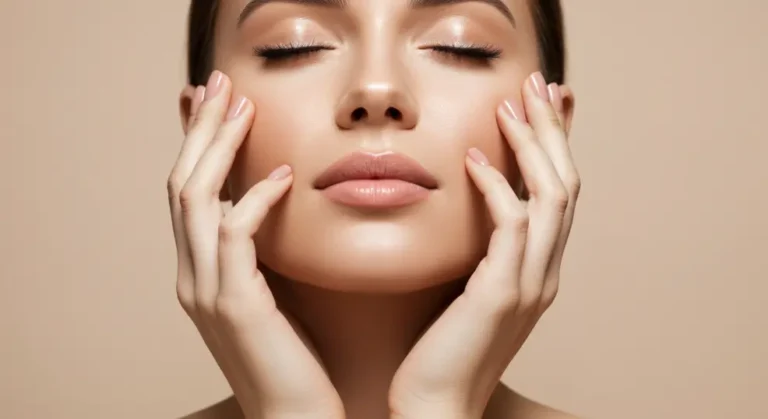Clear Skin Tips That Actually Work
We’ve all been there: staring at the mirror the morning of something important, and there it is — a breakout that feels like it showed up just to mess with you. Whether it’s acne, blackheads, or just dull, uneven skin, getting clear skin feels like a mystery sometimes. You try ten different products, change your diet, drink more water, and still, nothing seems to work fast enough.
The truth is, there’s no single magic product. Real results come from consistent habits and a mix of lifestyle, skincare, and a little patience. That’s why I wanted to put together clear skin tips that are realistic, backed by science, and actually doable. These aren’t about being perfect but about making small choices that help your skin heal and stay healthy long-term.
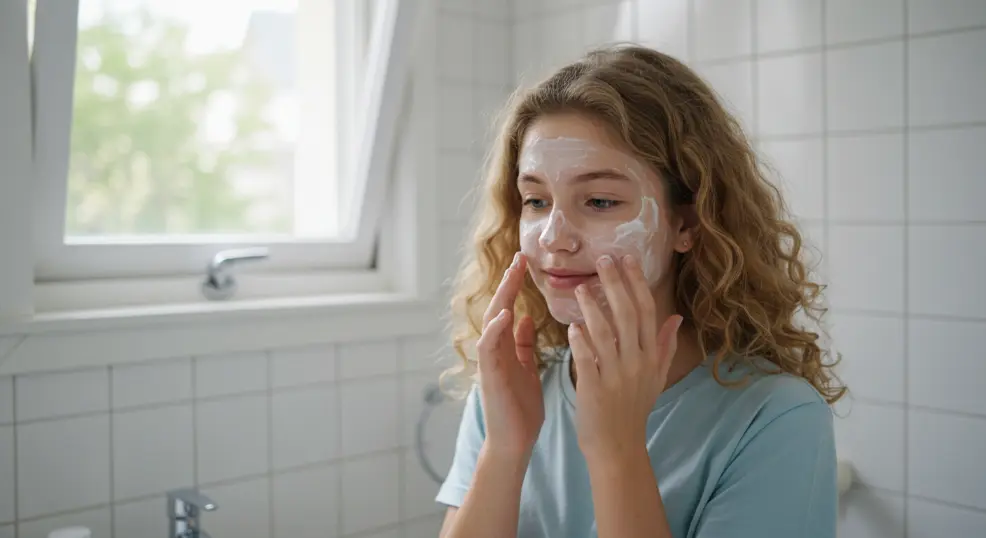
Why Skin Problems Happen in the First Place
Skin issues aren’t always about “not washing enough.” In fact, over-washing can make things worse. According to the American Academy of Dermatology, acne affects around 50 million people in the U.S. every year, and the causes are usually a mix of:
- Hormonal changes (like puberty, pregnancy, or stress)
- Genetics
- Diet and hydration
- Skincare habits
- Environmental triggers (pollution, humidity)
Knowing this helps, because it means clear skin tips should focus on multiple areas of life, not just throwing another cleanser into your routine.

Daily Clear Skin Tips That Make a Big Difference
Some habits might seem too simple, but they’re the foundation of clear skin. Here are a few to focus on every day:
- Wash gently, twice a day – Morning and night cleansing removes sweat, oil, and dirt without over-stripping your skin. Look for sulfate-free cleansers.
- Never skip moisturizer – Even oily skin needs hydration. Using the right moisturizer prevents your skin from overproducing oil.
- SPF is non-negotiable – Sun damage leads to dark spots and worsens breakouts. A lightweight SPF 30 is perfect for daily use.
- Hands off your face – Touching transfers bacteria, which often causes pimples in the chin and cheek areas.
- Hydrate properly – Drinking enough water (about 2 liters a day) keeps your skin barrier strong and reduces dullness.
These clear skin tips sound obvious, but most of us slip on at least one — especially SPF.

Building a Skincare Routine That Works
The skincare industry can feel overwhelming. One week everyone’s obsessed with niacinamide, the next it’s retinol or snail mucin. But building a simple routine that covers the basics will always beat complicated 10-step regimens.
Morning routine:
- Gentle cleanser
- Vitamin C serum (brightens and fights free radicals)
- Lightweight moisturizer
- Sunscreen
Evening routine:
- Makeup remover (if needed)
- Cleanser
- Exfoliant (AHA/BHA, but only 2–3 times per week)
- Retinol or acne treatment (if your skin tolerates it)
- Moisturizer or overnight mask
Consistency is the magic word here. Clear skin tips work when you give them weeks, not days, to show results.
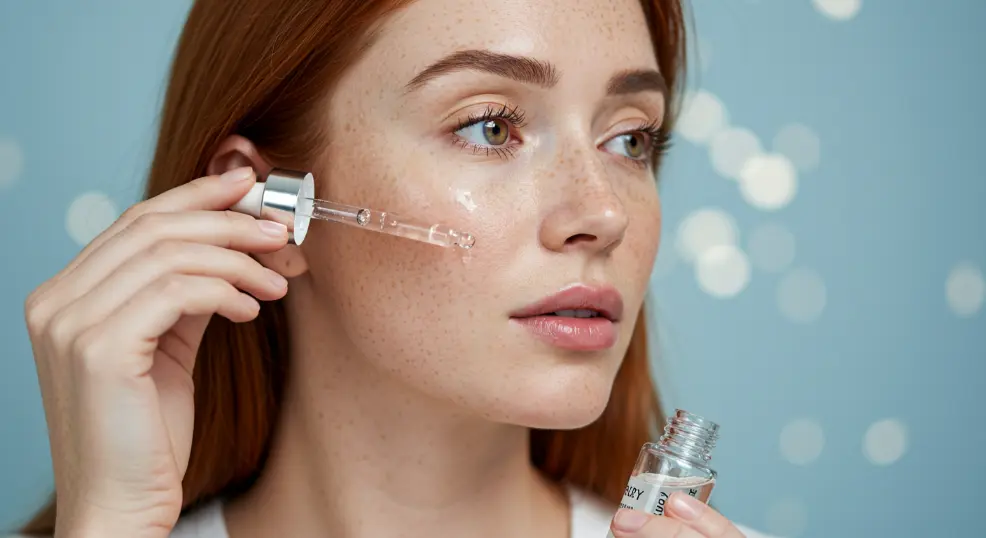
Lifestyle Habits That Support Clear Skin
Skincare products can only do so much if your lifestyle is working against you. These clear skin tips focus on your daily habits beyond the bathroom mirror:
- Sleep well – At least 7–8 hours. Skin repairs itself overnight.
- Manage stress – Cortisol spikes cause oil production to increase. Yoga, journaling, or even daily walks help.
- Balanced diet – Studies show diets high in processed sugar and dairy may worsen acne for some people. Lean proteins, leafy greens, and omega-3s are your friends.
- Stay active – Exercise improves circulation, which nourishes skin. Just make sure to shower after sweating.
These small tweaks not only support skin but improve overall health.

Seasonal Clear Skin Tips
Your skin changes with the weather, so clear skin tips should adapt too:
- Winter – Cold air dries skin. Use thicker creams, humidifiers indoors, and gentle exfoliation.
- Summer – SPF becomes even more important. Lightweight, non-comedogenic products prevent sweat-clogged pores.
- Spring/Fall – Transition seasons are perfect for repairing damage. Introduce serums or treatments gradually.
Think of it like changing your wardrobe — your skin needs seasonal adjustments as well.

Common Mistakes People Make While Trying Clear Skin Tips
Sometimes, it’s not what we’re doing but what we’re overdoing:
- Scrubbing too hard or too often
- Layering too many products at once
- Switching routines too quickly (give it 6–8 weeks to work)
- Ignoring diet and stress factors
- Sleeping with makeup on
These habits can undo all the good work of clear skin tips.

Natural vs. Clinical Treatments
Both natural and clinical approaches have a place in clear skin tips.
- Natural remedies – Aloe vera for soothing, honey for antibacterial effects, green tea for calming redness. These are gentle but take time.
- Clinical options – Retinoids, chemical peels, or dermatologist-prescribed treatments for stubborn acne. These work faster but may cause irritation if not guided properly.
The best clear skin tips usually combine both approaches, depending on your skin’s needs.
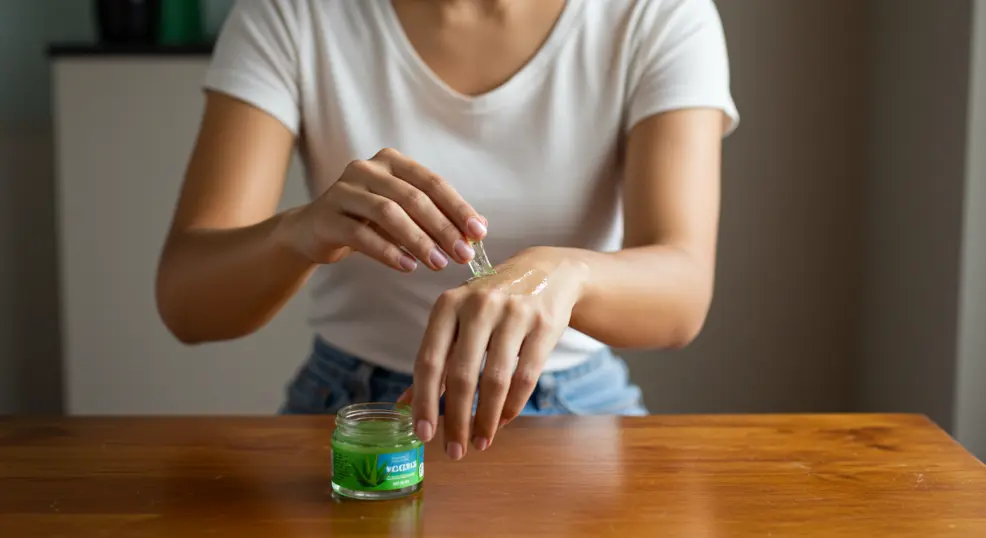
Clear Skin Tips for Different Ages
Clear skin isn’t a one-size-fits-all journey.
- Teens – Focus on oil control, gentle cleansing, and avoiding harsh scrubs.
- 20s and 30s – Preventative care becomes important: SPF, antioxidants, and hydration.
- 40s and beyond – Repair-focused tips like retinol, peptides, and deep hydration become priorities.
Adapting your clear skin tips as you age helps skin stay healthy long-term.
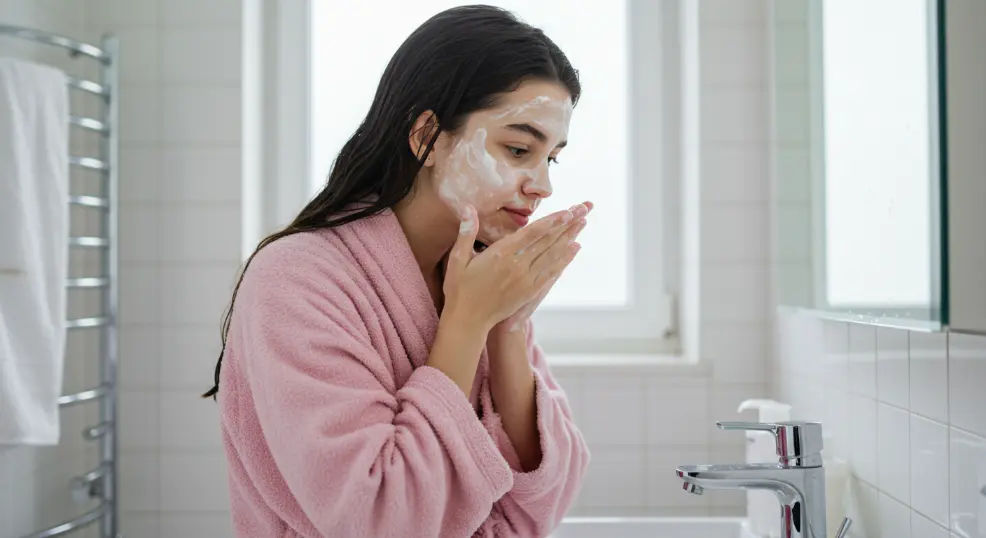
FAQs About Clear Skin Tips
What’s the number one rule in clear skin tips?
Consistency — stick to a simple routine and give it time.
Can diet really affect acne?
Yes, some people notice breakouts from high sugar or dairy intake. Keeping a food journal can help.
How long until clear skin tips show results?
Usually 6–8 weeks of consistent care before major improvements.
Do natural remedies work for acne?
They can help mild cases, but stubborn acne often needs dermatologist care.
Is SPF really necessary if I’m indoors?
Yes, UV rays can still penetrate windows.
Should I exfoliate daily?
No, 2–3 times per week is enough to avoid irritation.
Can drinking water alone clear skin?
Hydration helps, but it’s just one part of clear skin tips. Diet, products, and lifestyle matter too.
Do expensive products work better?
Not always. Ingredients matter more than price.
Should I pop pimples?
No — it increases scarring and spreads bacteria.
Can stress really cause breakouts?
Yes, stress hormones like cortisol can trigger oil production and acne.
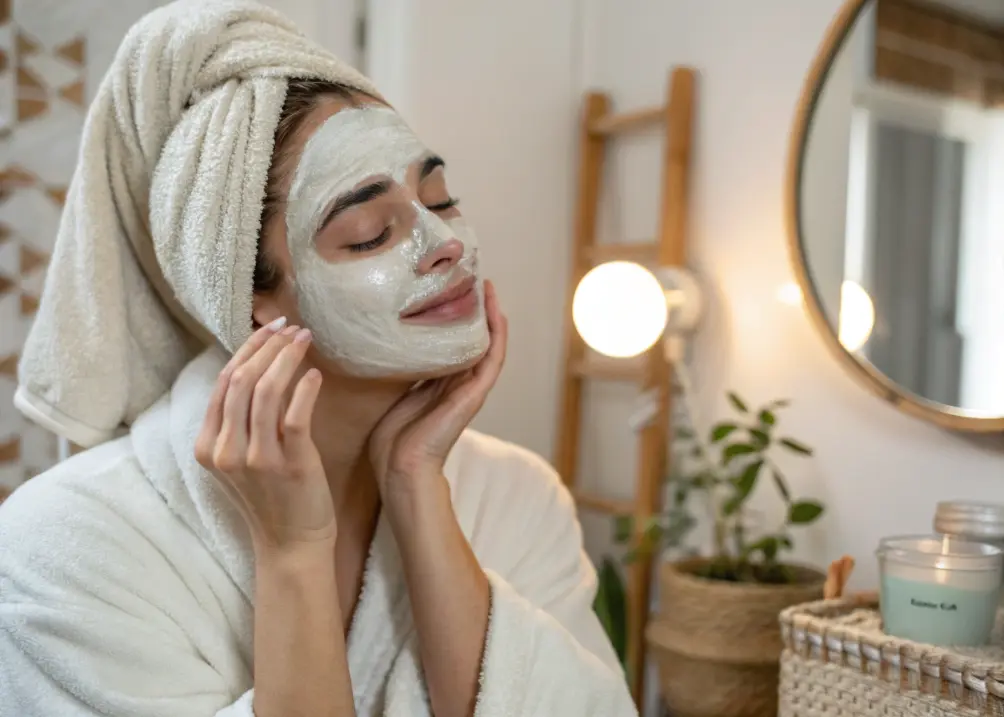
References
- American Academy of Dermatology – Acne Statistics
- Mayo Clinic – Acne Causes and Treatments
- Healthline – Skincare Routines and Ingredients
- National Institutes of Health – Diet and Acne Connections
Love seasonal style tips? you’ll definitely enjoy more home and lifestyle ideas we’ve shared just for you.
Hand Care Routines That Actually Work
Best Hair Colors for Brown Skin
Simple and Natural Hairstyles for Everyday Wear
Glass Skin Routine: Little Habits That Make a Big Difference

